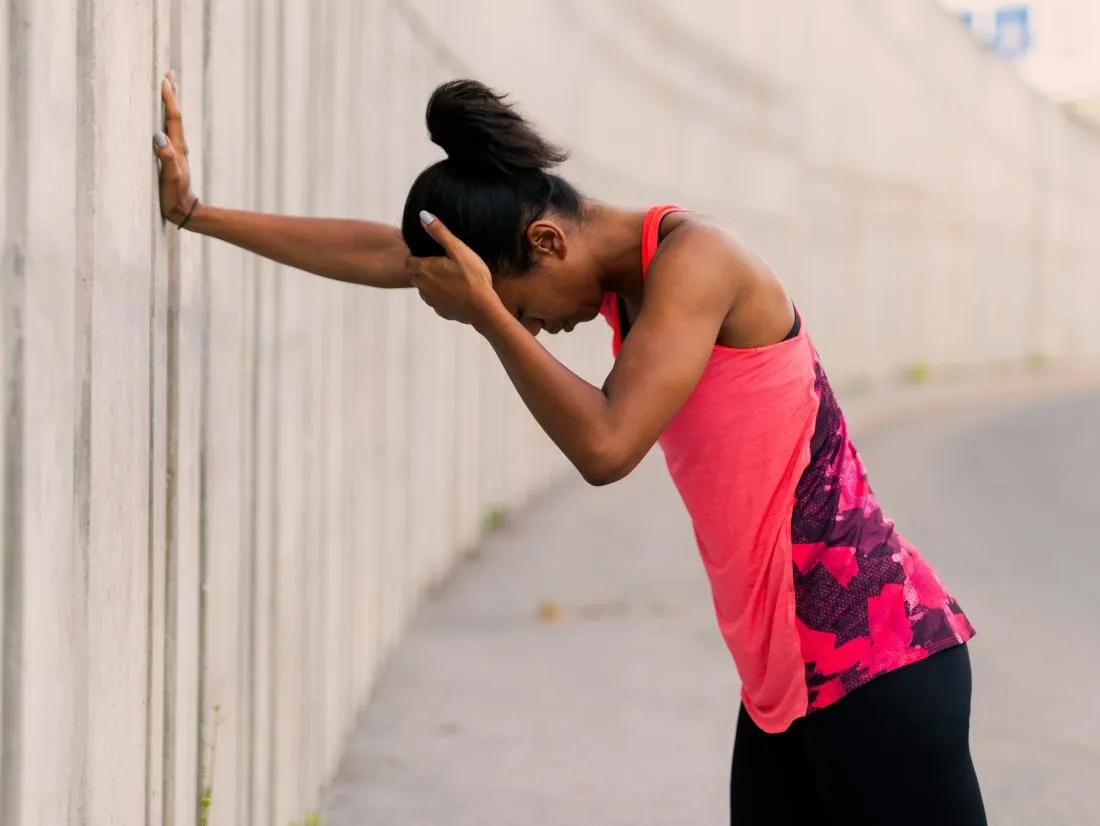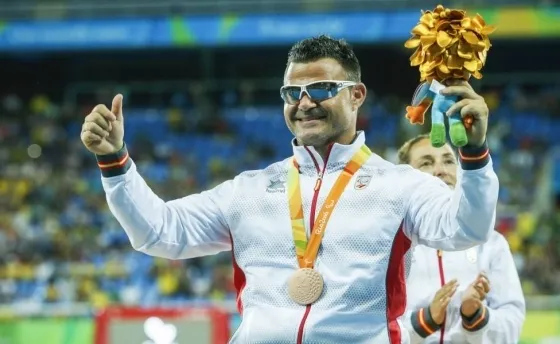
Hyperglycemia when exercising
Hello good I am type 1 diabetic and I go to the gym three times a week, in which I am one hour doing weight and half an hour on the ribbon jogging/running.
I know that starting the exercise above 160/70 is not recommended, but if I hope before starting to do so, the gym is filled with people and it is impossible for me to do anything quietly.
Before I used to get 1 or 1'5 of insulin before starting if I was above those levels, but it doesn't even lower me.
In fact, sometimes I get up to 300, and after exercising, there is almost nothing, at most to 250.
I can only go to the gym from 3 to 5, so I half mix with food.
Any trick or exercise to make insulin down at the end of the exercise?
I worry not to be gaining muscle or strength to train with such high glucose levels ...
Thanks for reading and I feel so much text!
09/27/2023 4:55 p.m.
Hi @Mariomn I see several things you could do .... It is also logical if your blood glucose goes up with the training training, it is easy to do very well that it is to cover with those units you speak of, but they have no effect.
Why do you eat? If your glycemia goes up in a non -eat force, the effect of your liver is already released glucose if or if, imagine that you already have food, they are two bodies releasing glucose at full pace.
Eat after training when you see that your glucose asks for it, you will also have an ideal sensibility to eat already in a state of Normaglycemia.You can visualize your glucose at the Gym at all times, which goes down because you eat something and you are playing with it.
The Gym almost always gives such fluctuations, but it is very simple to handle, come and give it hard, greetings.

09/27/2023 7:56 p.m.
Davidcasinos said:
Hi @mariomn I see several things you could do .... It is also logical that your blood glucose goes up with the training training, it is easy to also do it very well that it isCover with those units you are talking about, but have no effect.Why do you eat? If your glycemia goes up in a non -eat force, the effect of your liver is already released glucose if or if, imagine that you already have food, they are two bodies releasing glucose at full pace.
Eat after training when you see that your glucose asks for it, you will also have an ideal sensibility to eat already in a state of Normaglycemia.You can visualize your glucose at the Gym at all times, which goes down because you eat something and you are playing with it.
The Gym almost always gives such fluctuations, but it is very simple to handle, come to give it hard, greetings.
Hi David, thanks for your answer.If, as before training, it is because I leave home at 6 in the morning and I don't get back until 14, and in all that time I just have time to eat a small snack.So I don't want to go to train with so little food because I am hungry and 2- I can pass out the lack of intake.
09/27/2023 8:06 p.m.
Hello.To see fainting due to lack of intake I do not believe since with force of force the glucose raises you, in fact I have the same schedule as you and without eating since the previous afternoon and the glucose rises, I will completely eliminate the hunger.It is what the body usually.I train after 18h of fasting and the glucose rises to 200 from 80mg/l, but then goes down alone without having to put anything in later hours.Hunger is many times social or mental.In fact I do not train agusto if I have eaten before, in addition to the stress of being at the top of 200mg/l .....
09/27/2023 11:20 p.m.
Hi @Mariomn!I understand you perfectly, the gym can be a challenge with these glucose levels.
Here I tell you some topics that you can review:
Food and Timing: Try to adjust a little what you eat before going to the gym.Sometimes, changing the type of carbohydrates or quantity can make a difference.
Insulin: Adjust the doses before training.If 1 or 1'5 units are not working for you, maybe you could try a different dose or even change the time you put it on.
Cooling exercises: At the end, instead of stopping dry, make a few minutes of stretching or light walk.It helps me that glucose does not shoot so much.
Talk to your endocrine: If you see nothing works, maybe it's time for a talk with your doctor.There may be something else at stake or you need an adjustment in your treatment.
And about the muscle, do not discourage you!Although it is true that stable glucose levels help, the most important thing is the constancy and effort you are putting.Surely you are winning muscle and strength!
Courage and here we are to support each other.A strong hug and to give cane in the gym!

09/28/2023 8:05 a.m.
@fer - Diabetes Tipo 1 desde 1.998 | FreeStyle Libre 3 | Ypsomed mylife YpsoPump + CamAPS FX | Sin complicaciones. Miembro del equipo de moderación del foro.
Co-Autor de Vivir con Diabetes: El poder de la comunidad online, parte de los ingresos se destinan a financiar el foro de diabetes y mantener la comunidad online activa.
Hi @Mariomn!I understand you perfectly, the gym can be a challenge with these glucose levels.
Here I tell you some topics that you can review:
Food and Timing: Try to adjust a little what you eat before going to the gym.Sometimes, changing the type of carbohydrates or quantity can make a difference.
Insulin: Adjust the doses before training.If 1 or 1.5 units are not working for you, maybe you could try a different dose or even change the time you put it on.
Cooling exercises: At the end, instead of stopping dry, make a few minutes of stretching or light walk.It helps me that glucose does not shoot so much.
Talk to your endocrine: If you see nothing works, maybe it's time for a talk with your doctor.There may be something else at stake or you need an adjustment in your treatment.
And about the muscle, do not discourage you!Although it is true that stable glucose levels help, the most important thing is the constancy and effort you are putting.Surely you are winning muscle and strength!
Courage and here we are to support each other.A strong hug and to give cane in the gym!

09/28/2023 8:06 a.m.
@fer - Diabetes Tipo 1 desde 1.998 | FreeStyle Libre 3 | Ypsomed mylife YpsoPump + CamAPS FX | Sin complicaciones. Miembro del equipo de moderación del foro.
Co-Autor de Vivir con Diabetes: El poder de la comunidad online, parte de los ingresos se destinan a financiar el foro de diabetes y mantener la comunidad online activa.
Good @mariomn
-Conócete: Analyze that glycemia fluctuations normally have each type of training to make the best decision.
-He insulin guideline: you can make the case you have little basal, use a quick insulin that is short of speed of action .. for example Humalog in front of Fiasp.
-He foods: Being hunger does not imply eating hydrates.You can make a breakfast rich in healthy proteins and fats that do not have an instant impact on your glycemia, and if they give you energy for training and keeps you more stable post exercise.
Now the most say technique that I think is important that we should know.
When a high intensity exercise is performed in little time interval, the body activates defense mechanisms that release hormones such as adrenaline, catecholamines etc ... In summary they have a hyperglycemic impact.
When the exercise ends in an interval of 30-45min, the body re-normalizes that hormonal state and the recovery begins and in one of them the muscle demands glycogen so it is where you notice that descent from 300 to 250 .. that ideallyIf you ended up in the range, you could eat that Sanwi just at the end of training without even needing insulin.
It is important to know what to do at every moment and know your body as I have commented at the beginning, the sensor that measures our glucose gives a very good info that well used allows us more freedom to exercise among others.
Finally, tell you that the strategy of weighing and ending Cardio seems great to counteract that climb but also keep in mind that you will then need more HC to recover.
09/28/2023 8:43 a.m.
aer said:
hello.To see fainting due to lack of intake I do not believe since with force of force the glucose raises you, in fact I have the same schedule as you and without eating since the previous afternoon and the glucose rises, I will completely eliminate the hunger.It is what the body usually.I train after 18h of fasting and the glucose rises to 200 from 80mg/l, but then goes down alone without having to put anything in later hours.Hunger is many times social or mental.In fact I do not train agusto if I have eaten before, in addition to the stress of being at the time of 200mg/l .....
Good, I don't think your comment contributes anything since you speak from a very personal experience.Great if you can endure hunger or not even be hungry in so many hours, but it is not my case or want it to be.Next time, keep in mind that not everyone has your mentality, or your way of living, or your strength or anything.
All the best
09/28/2023 11:30 p.m.
fer said:
hello @mariomn!I understand you perfectly, the gym can be a challenge with these glucose levels.Here I tell you some topics that you can review:
Food and Timing: Try to adjust a little what you eat before going to the gym.Sometimes, changing the type of carbohydrates or quantity can make a difference.
Insulin: Adjust the doses before training.If 1 or 1.5 units are not working for you, maybe you could try a different dose or even change the time you put it on.
Cooling exercises: At the end, instead of stopping dry, make a few minutes of stretching or light walk.It helps me that glucose does not shoot so much.
Talk to your endocrine: If you see nothing works, maybe it's time for a talk with your doctor.There may be something else at stake or you need an adjustment in your treatment.
And about the muscle, do not discourage you!Although it is true that stable glucose levels help, the most important thing is the constancy and effort you are putting.Surely you are winning muscle and strength!
Courage and here we are to support each other.A strong hug and to give cane in the gym!
Thank you very much for your answer Fer!I never stopped stopping it, I always dedicate several minutes to walk after running, more minutes of final stretching (I always stretch before and after training)
I will try to change the type of food I take before training, since I have realized that I like too many HC of starches and that is what makes me upload the glucose even after training.
Insulin I prefer not to touch it at the moment has preferred to have some hyper than a hiccup, but I will have it in mind.
Thank you very much again ❤️
09/28/2023 11:33 p.m.
@Mariomn, tips I sell that I don't have a lot for me in this forum !!
09/29/2023 1:23 p.m.
Hi Mariomm.My comment was to help, I feel that I do not seem like help.Good luck, I clarify that I do not "sell" anything, just tell what works for me and that I thought it could be useful to you, I give you the reason that this disease has hardened me in excess.
Greetings and reconside what I tell you.
09/29/2023 4:09 p.m.
fer said:
hello @mariomn!I understand you perfectly, the gym can be a challenge with these glucose levels.Here I tell you some topics that you can review:
Food and Timing: Try to adjust a little what you eat before going to the gym.Sometimes, changing the type of carbohydrates or quantity can make a difference.
Insulin: Adjust the doses before training.If 1 or 1.5 units are not working for you, maybe you could try a different dose or even change the time you put it on.
Cooling exercises: At the end, instead of stopping dry, make a few minutes of stretching or light walk.It helps me that glucose does not shoot so much.
Talk to your endocrine: If you see nothing works, maybe it's time for a talk with your doctor.There may be something else at stake or you need an adjustment in your treatment.
And about the muscle, do not discourage you!Although it is true that stable glucose levels help, the most important thing is the constancy and effort you are putting.Surely you are winning muscle and strength!
Courage and here we are to support each other.A strong hug and to give cane in the gym!
Hello, I have at first I am 53 years old and I was diagnosed at 14 a lot to know about the diabetis I went to the gym and uploaded more the doctor told me that going tantLoca has spent 40 years I have been a pancreas transplant and kidney no longer skewed but the kidney did not work for a year and a half without clicking and my controls with freestyle what I take a lot of I do not drink.Every day, so you don't get depressed over the years, the whole principle is stabilized is the hardest thing but I encourage you to follow and do not decline. A hug

10/01/2023 12:34 p.m.